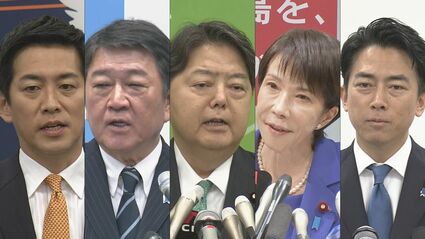The leadership race for Japan's dominant political party, the Liberal Democratic Party (LDP), is heating up with notably three top candidates vying for the position. The LDP's internal elections, typically held every three years, not only determine the leader of the party but often, by extension, the Prime Minister of Japan as well. The outcome has significant implications for the country's domestic and foreign policy.
In Japan, the Liberal Democratic Party has been in power almost continuously since its inception in 1955, meaning that the winner of this leadership race stands a good chance to become the next Prime Minister. Many citizens watch these internal elections closely, given the influence of the LDP over national policy and law. Policy discourse, personal integrity, and the ability to guide Japan on the global stage are typically points of concern for voters.
While political parties in the United States or European Union also hold internal votes to determine party leadership, the structure of government in many of those nations often means the party leader is not guaranteed to become the country's leader, unlike in Japan where the Prime Minister more often than not comes from the ruling party - LDP.

